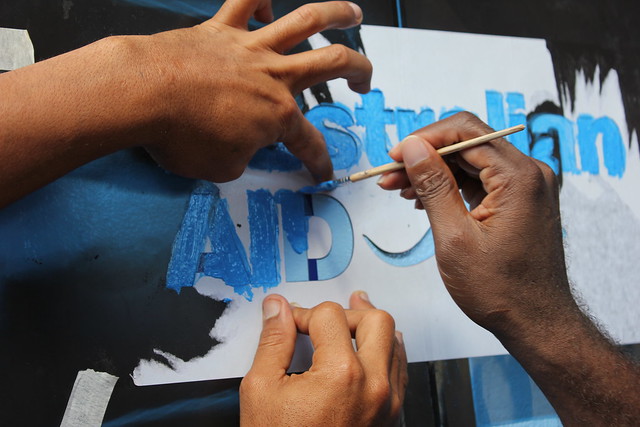The last straw for independent Australian aid?

In a speech in late 2001, Colin Powell stunned humanitarian actors around the world by describing NGOs as a ‘force multiplier’ for the US diplomatic and defence efforts around the globe and ‘an important part of our combat team’.
Although perhaps well intentioned, Powell’s characterisation of the role of NGOs signalled the beginning of a more dangerous era of American foreign policy and pointed to a fundamental lack of understanding among administration officials about the risks humanitarian workers face when they’re perceived to be affiliated with political and military forces.
Humanitarian organisations and their staff operate under a strict set of principles: humanity, neutrality, impartiality and independence. With humanitarian action now heavily concentrated in contexts of conflict and violence, independence—the notion that humanitarian action must be autonomous from political, economic and military objectives—has come to be one of the most important principles for humanitarian actors and the people we serve.
These principles play a critical role in ensuring that humanitarian personnel can access civilians on all sides of a front line and can support those in greatest need, wherever they may be found. The principles are also essential in protecting our staff who work in these dangerous settings, who rely on community acceptance as their primary source of security.
In late May, Alex Hawke was appointed Australia’s minister for international development and the Pacific. Scott Morrison’s re-elevation of the role to a ministry is a welcome move and demonstrates the government’s commitment to the Pacific step-up, and hopefully to international development more broadly.
Hawke’s parallel appointment as assistant minister for defence, however, is a worrying indication of how Australia’s humanitarian aid program may be viewed by the new government. In his press conference, the prime minister noted that this dual appointment would hopefully lead to greater integration of Australia’s international development and defence efforts in the Pacific.
For those who experienced the blurred lines of America’s foreign policy during the so-called war on terror, Hawke’s joint appointment and the prime minister’s statement are unwelcome echoes back to Powell’s 2001 remarks. As in 2001, humanitarians in Australia are worried about what this will mean for the preservation of independence, and for perceptions of our neutrality when delivering government-branded assistance in active conflict settings.
Any affiliation between political or military actors and humanitarian organisations, even if only an implied affiliation, can compromise development and humanitarian efforts and jeopardise the safety of humanitarian workers. And the risk is real: humanitarian personnel have been targeted in Afghanistan and other places as a result of affiliations to donor governments with negative reputations.
Even before this announcement, humanitarian and development workers have faced pressure to frame humanitarian outcomes with a defence lens. In Afghanistan, for example, it is no longer enough to report how many children and families have benefited from lifesaving assistance or development support. Now, NGOs are also being encouraged to report how many beneficiaries have chosen not to join armed groups as a result of benefiting from this assistance.
While this line of inquiry might make sense from a foreign policy perspective, the practicalities of how this information is collected present real risks for humanitarian staff on the ground. Asking whether someone was or is likely to join an armed group raises understandable questions in communities about who the interviewer is working for and how the information will be used. Ultimately, asking these types of questions puts humanitarian staff directly in the centre of the conversations they try hardest to avoid.
With Hawke’s appointment to assistant defence minister, many humanitarians fear that this pressure to blend humanitarian and defence outcomes will grow and start to affect our work in other countries. While right now Afghanistan is a fairly isolated case, it’s not difficult to imagine the same pressure being applied to our work in Syria, Iraq or even parts of the Philippines or Indonesia.
Like most other major international donors, Australia has endorsed (and recently co-chaired) the Good Humanitarian Donorship initiative. The initiative reinforces the principle that humanitarian assistance must be provided on the basis of need alone, without influence from political or military agendas. This is likewise consistent with the OECD regulations, which clearly state that ‘Military aid and promotion of donor’s security interests’ do not constitute official development assistance.
It’s critical that Australia’s humanitarian decision-making remains independent as Hawke takes up his new role, and that Australia redoubles its commitment to the Good Humanitarian Donorship principles that it has been instrumental in leading.
While it could be argued that Hawke’s two hats will ensure consistent policy across these two portfolios, it’s also possible that defence will undermine the humanitarian imperative if it’s not taken seriously from the outset. Hawke will need to be deliberate in maintaining a distinction between these two portfolios as he navigates these new spheres, and ensure independent humanitarianism is not compromised by military or political agendas.